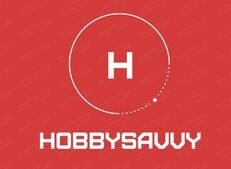Article Summary
Hobbies give meaning and fun to life. Hobbies relax you. Hobbies make you learn. This guide defines a hobby. It exposes the advantages of hobbies for everyone. Learn how to select a good pastime for yourself. Learn new activities you can do today. Discover the benefits and drawbacks of various hobbies. This 3000-word guide provides easy guidance. It provides you with steps for getting started with your pastime. Hobbies lift your mood. Hobbies develop your skills. Hobbies introduce you to new friends. Seeking something new? This post reveals where your passion lies. Start a new hobby now and get joy. Horizon Hobby brings thrills to life. Their vehicles spark joy for all. From drones to cars, they shine.
What is a Hobby?
Understanding Hobbies
A hobby is something you love doing. It’s not your job. You do it for fun. Hobbies fill your free time. They can be simple or complex. Painting pictures is a hobby. So is collecting old coins. Hiking trails count too. A hobby matches what you enjoy. You don’t need to be great at it. It’s about feeling happy. For example, gardening can be a pastime. Playing chess or baking works too. Hobbies let you be yourself. They spark joy and creativity. Everyone can find a pastime.
Why Hobbies Are Important
Hobbies inject excitement into life. Hobbies calm you down. After a day’s work, a hobby helps you relax. It distracts you from tension. Hobbies open you up to new experiences. Knitting instills patience. Soccer hones teamwork. Your mind keeps you sharp with hobbies. It also keeps you close to people. As a member of a dance team, you get friends. Even silent hobbies like reading lift your spirits. Hobbies put a smile on your face. Hobbies give direction. Life is enhanced with a pastime. It’s a fun experience for growth.
Types of Hobbies to Explore
Hobbies come in all kinds. Creative ones include drawing or writing. Active hobbies, like running, keep you moving. Brainy hobbies, like puzzles, challenge you. Collecting stamps or cards is fun too. Outdoor hobbies include camping or fishing. Cooking mixes creativity and skill. Photography captures memorable moments. Some hobbies are done alone. Others bring people together. There’s a hobby for everyone. Try a few to see what clicks. Mixing hobbies keeps things fresh. You’ll find one that feels right.
How to Pick a Hobby
Think About What You Love
Start with what makes you smile. Do you like being outside? Hike or bike. Do you enjoy creating things? Paint or fix. Go back to childhood. Did you play sports or colour? Those are clues. Ask friends what their hobbies are. Maybe their passions bring you alive. Write down the things you get passionate about. Narrow down a few.
Match Your Time and Budget
Hobbies cost money and time. Some, e.g., reading, cost very little. Others, such as skiing, require specialised equipment. Check your daily schedule. One hour a week? Then you can get started. Gardening needs hard work. Make a limited budget. Purchase the basic materials required to get started. You can upgrade later. For example, buy cheap paints first. Time and money must never be a cause for worry. Choose a hobby easy to manage. It keeps the fun continuing.
Experiment with New Activities
It’s entertaining to experiment. Sign up for a class in a hobby. Free workshops are regularly offered in town. Look online for advice in videos. Start with limited experiments. Spend an hour knitting. Or try a session in yoga. Do a town club for a pastime. Members share ideas and support. Go shopping for ideas. Try a variety of hobbies over time. Some you’ll be pleased with, others you won’t. Don’t worry, this is how you learn. Keep exploring for a hobby. Searching is part of the experience.
Step-by-Step Guide to Starting a Hobby
Step 1: Research Your Hobby
Choose one hobby to try. Look up details online. Read blogs or watch tutorials. Learn what you’ll need. For gardening, check tools. For photography, study cameras. Ask hobbyists for advice. Join forums to ask questions. Make a list of supplies. Note the time it takes. Research builds confidence. It makes starting less scary. Begin with easy projects. Don’t dive in too deep. Knowing the basics sets you up. It makes your pastime more fun.
Step 2: Get Your Supplies
Buy what you need first. For art, buy paints and brushes. For a hike, invest in good hiking shoes. Start with simple tools. Don’t buy high-tech products. Buy in stores near you or online. Look for promotions. Buy from friends when you can. Make a shopping list first. Be in your budget. Keep supplies in order. It keeps your area tidy for hobbies. It feels right when you are ready with ready-to-use tools. You are all set to get started.
Step 3: Plan Your Time
Allow time for your hobby. As little as 20 minutes a week is enough. Could you please add it to your calendar? Make it a meeting. Choose a time you are free. Evenings or a weekend are good. Be consistent. Short sessions forge habits. Inform family about your pastime. They’ll encourage you. Don’t do too much too soon. One chapter from a book is enough. Or play your guitar twice a week. Consistency makes hobbies persistent. It keeps it enjoyable with rewards.
Step 4: Learn the Basics
Start with basic skills. Watch videos or take a course. Do something in one session. In knitting, practice basic stitches. In cooking, try basic recipes. Mistakes are okay. You learn from your mistakes. You proceed. Join a new group. They provide tips and motivation. Practice for a short time each week. Keep a notepad. Note down everything you learn. It tracks your progress. Learning the basics gives you confidence. Your hobby is enjoyable. It’s a pleasant experience.
Step 5: Find a Community
Connect with hobby lovers. Join local clubs or online groups. Meet people at classes or events. They share tricks and stories. Communities make hobbies better. You stay excited to keep going. Show your work to others. Get ideas to improve. For example, join a book club. Or attend a craft meetup. Friendships grow through hobbies. Groups host fun events too. You might join a contest. Connection makes your pastime special.
Step 6: Keep Practising
Practice makes perfect. Set aside time for your hobby each week. Set tiny goals for yourself to keep you focused. Do one drawing. Or try a new recipe. Keep a tally of your successes. Treat yourself for small triumphs. They keep you inspired. Don’t seek perfection. As with new experiences. Try challenging skills as you grow up. Share your stuff with friends. Their support makes you cool. Practice turns a pastime into a skill. It solidifies your love for it.
Benefits of Having a Hobby
Improves Your Mood
Hobbies help you feel great. They take stress away. Painting or reading calms you down. A hobby distracts from problems. It lifts your spirits fast. Doing what you love is fun. Experts say hobbies lower worry. They make you feel proud. Even simple hobbies, like journaling, help. Your mind gets a break. Hobbies are like free therapy. You feel happier every day. It’s a simple way to smile.
Teaches New Skills
Hobbies build functional abilities. Cooking makes you a kitchen pro. Gardening teaches care and patience. Every hobby offers lessons. Puzzles improve problem-solving. Writing sparks creativity. These skills help at work. They also make you interesting. Employers like curious people. Hobbies show you love learning. Your brain stays active. It’s a fun way to grow. Skills from hobbies last forever.
Builds Friendships
Hobbies bring people together. A dance class creates bonds. Book clubs start great chats. Even solo hobbies, like blogging, connect you online. You meet people who get you. These friendships feel special. Group hobbies teach teamwork. They boost your confidence too. Sharing your hobby is fun. You learn from others. Social bonds make life better. Hobbies turn strangers into pals.
Adds Fun to Life
Hobbies make every day exciting. They fill free time with joy. Painting a picture feels great. Hiking a trail is thrilling. Every hobby brings happiness. You forget daily worries. Hobbies give you something to love. They make time fly by. Even small hobbies, like collecting, spark joy. Life feels fuller with a pastime. It’s an easy way to stay happy.
Challenges of Hobbies
Finding Time
Hobbies need time to enjoy. Busy days make it hard. Work and family come first. Even an hour feels tough. You might feel bad taking time. Start with short sessions. Ten minutes is enough. Plan to make it work. Time management helps a lot. Hobbies fit when you try.
Costs Can Grow
Some hobbies require an investment. Art supplies and sports gear can add up. Even small things aren’t free. Budget carefully to stay happy. Start with cheap options. Borrow gear from friends. Free hobbies, like walking, work too. Plan costs to avoid stress. Money shouldn’t ruin your fun.
Learning Takes Effort
It is hard when you do something new. You can get it wrong in the first instance. Programming or knitting is not simple. Mistakes can make you irritated. Be kind to yourself. Start with simple steps. Grab learning tutorials. It gets better with practice. Everybody is a beginner at the start. Keep experimenting for a better finish.
Staying Excited
Hobbies are a maintenance labour. Enjoyment can sometimes disappear. Life interference happens. Set short-term, fun goals. Get involved with encouragement groups. Check progress for ongoing interest. Mix tasks to avoid boredom. Work builds motivation. Your hobby will be fun again.
Conclusion
Hobbies enliven your days. It makes you cheerful and grow. Unwind with a pastime. Also, a pastime informs. From art crafts to trekking, there is a pastime for you. This manual provides a step-by-step guide on how to get started. Select a pastime you relish. Try new ones and practice. Do it with friends to enjoy each other. Hobbies enliven your mood and performance. Hobbies also get you close to friends. Set a time for it. Also, don’t bother with money. Start small and explore. Discover your hobby’s location today. It’ll make life a whole lot better. Dive in now and experience the happiness today!
Frequently Asked Questions
What’s a hobby?
A hobby is something you enjoy. You do it for fun, not for work. It brightens free time.
How do I choose a hobby?
Think about what you like. Try something new. Select something from your schedule and within your price range.
Are hobbies costly?
Some hobbies are expensive. Others, like reading, cost nothing. Start small to keep costs down.
Where can I find hobby friends?
Join local clubs or online groups. Meet people at classes. They share your passion.
Citation
-
No external sources were used. This article draws on general knowledge and personal insights about hobbies.
Disclaimer
This article offers general hobby advice. It’s not professional guidance. Consult experts for specific hobby concerns. Always prioritize safety and budget.






